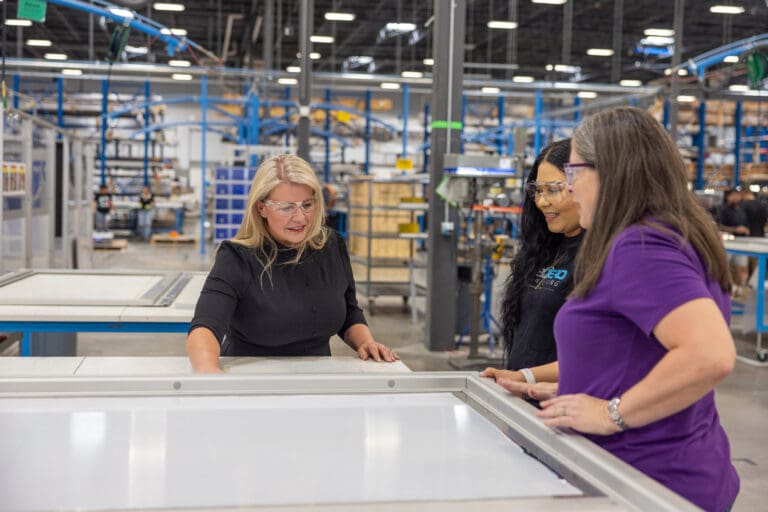Dr Kirsty Perrett is a Lead Cyber Engineer at Thales.

Although she has an extensive twelve-year background in the industry, she had an atypical start to her cyber career, working at an NHS call centre. She later pivoted to Telecommunications and Networking within the NHS, and eventually made the move to cybersecurity.
Nowadays, Kirsty plays a pivotal role at Thales, splitting her time between engaging customer demos in the cyber labs, representing Thales on visits to global clients, collaborating with schools to teach essential cyber skills to students, and contributing to the development of the next generation of cyber security experts.
The Far-Reaching Impact of Cyber
Although many don’t know exactly what cybersecurity entails, it impacts every single aspect of our lives. Throughout my time at the NHS, I witnessed first-hand the real-world impact of cyber in everyday scenarios. The WannaCry ransomware attack on 2017 is a prime example of how cyber can disrupt the critical infrastructure we rely upon every day. I also got to witness how effective teamwork and diversity of talent can make all the difference in overcoming such cyber breaches.
Cyber really is everywhere, and it impacts us all. Its presence across all sectors also means that there are a variety of career paths you can take to enter the industry, which in turn requires a real diversity of talent.
The more awareness we can bring to this message, the more diverse our field will become—exactly what cybersecurity needs. This is crucial in understanding how the boardroom can implement a DEI recruitment strategy that ensures varied perspectives are represented.

A Diverse Talent Pool
Although diversity in the industry is improving, women only represent 24% of the workforce in cyber. So, we need to do more to encourage and support women – and indeed anyone – looking to enter the industry. In fact, with the variety of career routes available across cyber, we desperately need a diverse range of individuals and skills to work across these roles. We therefore need to do more to find the right person for every role within the industry – irrespective of gender, race, background, or any other attributes. Indeed, focusing on hiring prospective candidates with that all-important passion and genuine interest should be the key priority for organisations and hiring managers. The role should always go for the person best suited to the role – without any preferential treatment one way or another.
Women should not just feel like they are hired to fill to diversity quotas, but because they have earnt the right to be there based on their ability and merit, and for what unique attributes they can bring to the table. It’s easy to see how women, or anyone beyond the ‘typical’ cyber candidate, could develop imposter syndrome in tech industries, so we need to stop gender classifying and generally stereotyping certain job roles or entire sectors in the first place.
The Next Generation in Cyber
Seeing greater interest in cyber partly comes down to providing greater exposure to these opportunities and raising awareness. For example, I run cyber sessions for children at Thales Ebbw Vale, where we hope to raise aspirations and open potential career paths to children in the local area. This is a really rewarding part of my role, as I have seen a few young people decide that they want to become cyber engineers. This shows how important bringing the spark to cyber is; we must show how cyber can be exciting, as well as some of the real-life applications to make it more tangible and accessible to outsiders. Businesses engaging with the local communities, universities, and schools, like Thales does, is an excellent way to do so.
But unfortunately, not all girls and young children generally have adequate exposure and opportunities to learn about practical or engineering career paths in this way. This means STEM education within school curriculums is more important than ever. Rather than being taught to simply pass an exam in a subject, which can often feel like a tick-box exercise, young people need to be inspired for their long-term careers, and know all the options.
The Final Word
The future of the cyber industry is dependent on securing a sustainable pipeline of future talent. An integral part of this stems from inspiring young people from all walks of life to join the field, and ensuring that the talent pool is diverse from all perspectives. While there is no quick win, efforts to introduce young students to the cyber industry necessitates a three-way approach from schools, government, and industry for it to be most effective.







